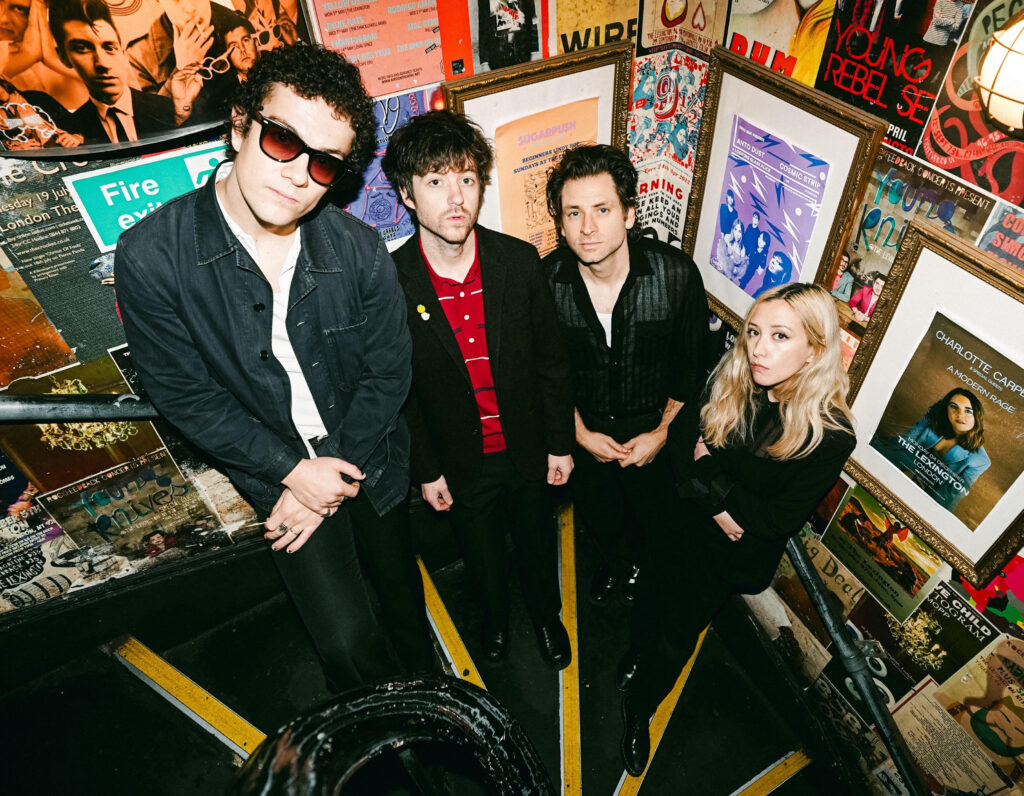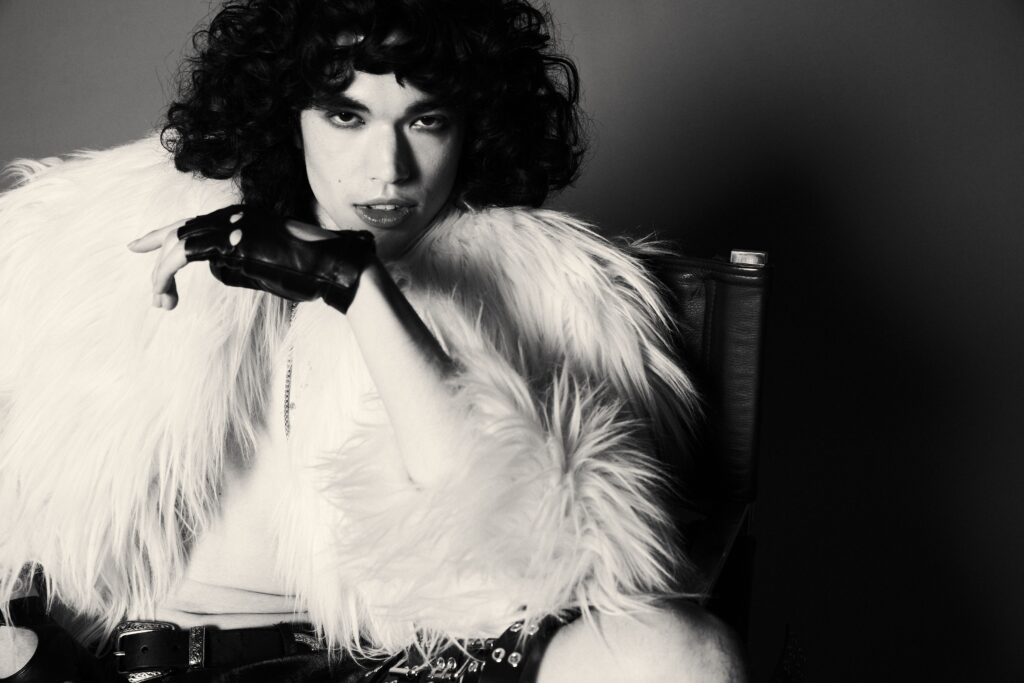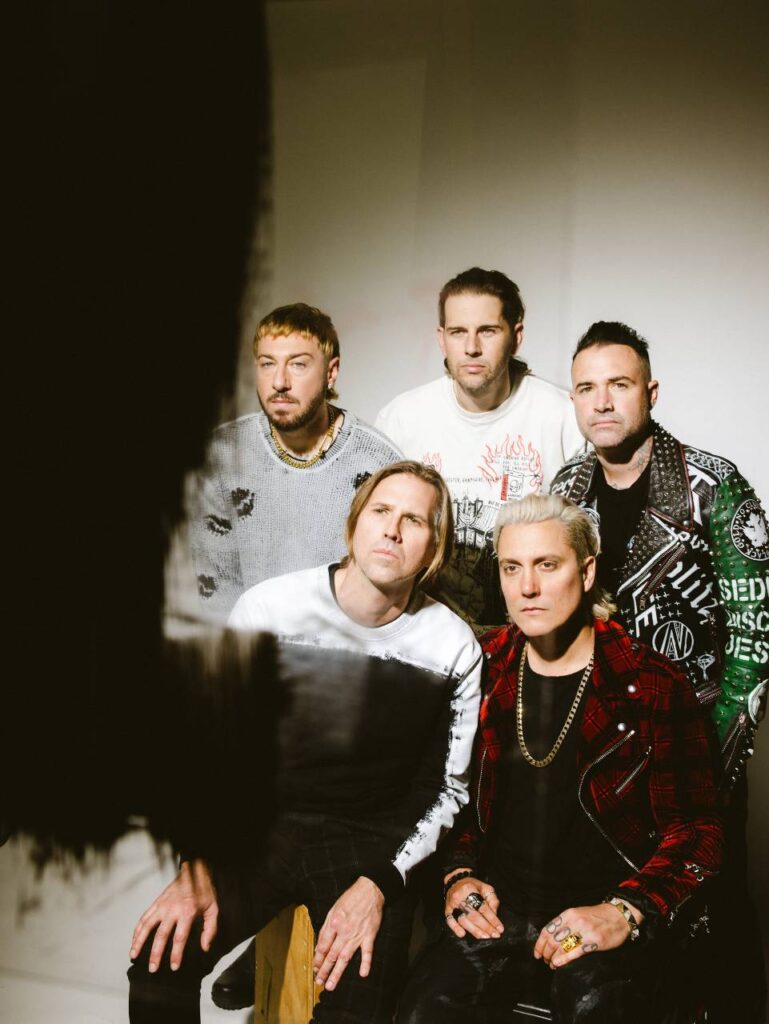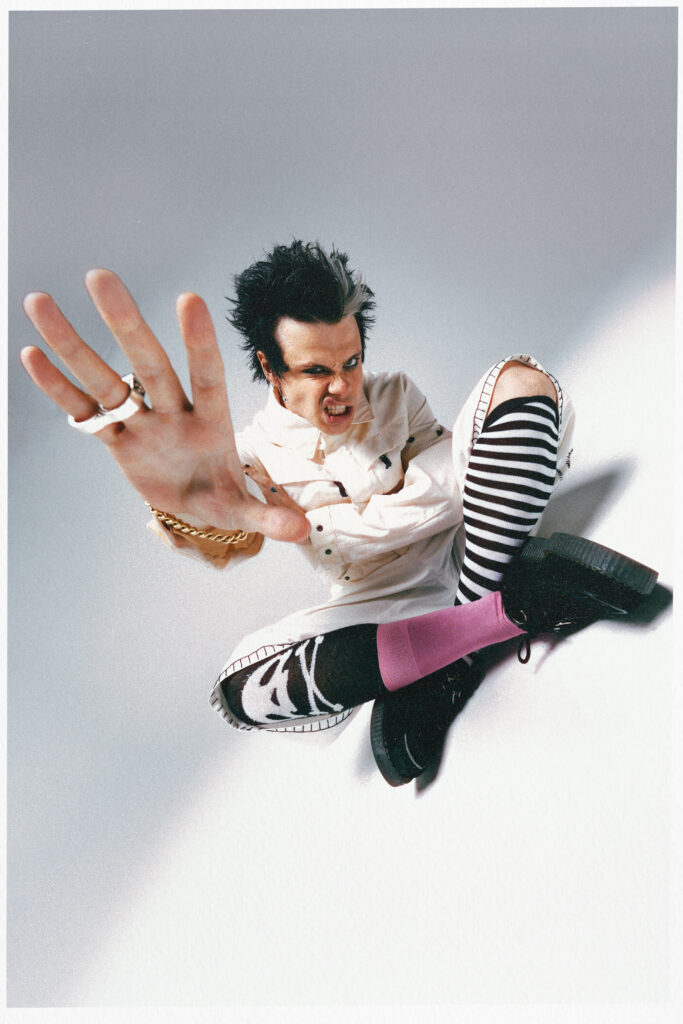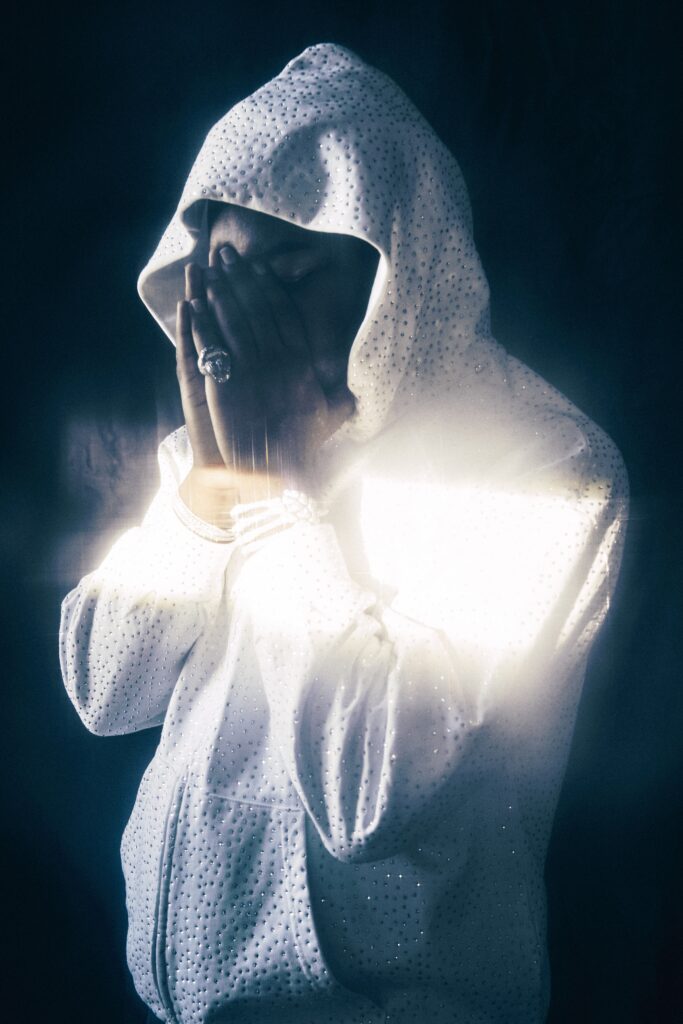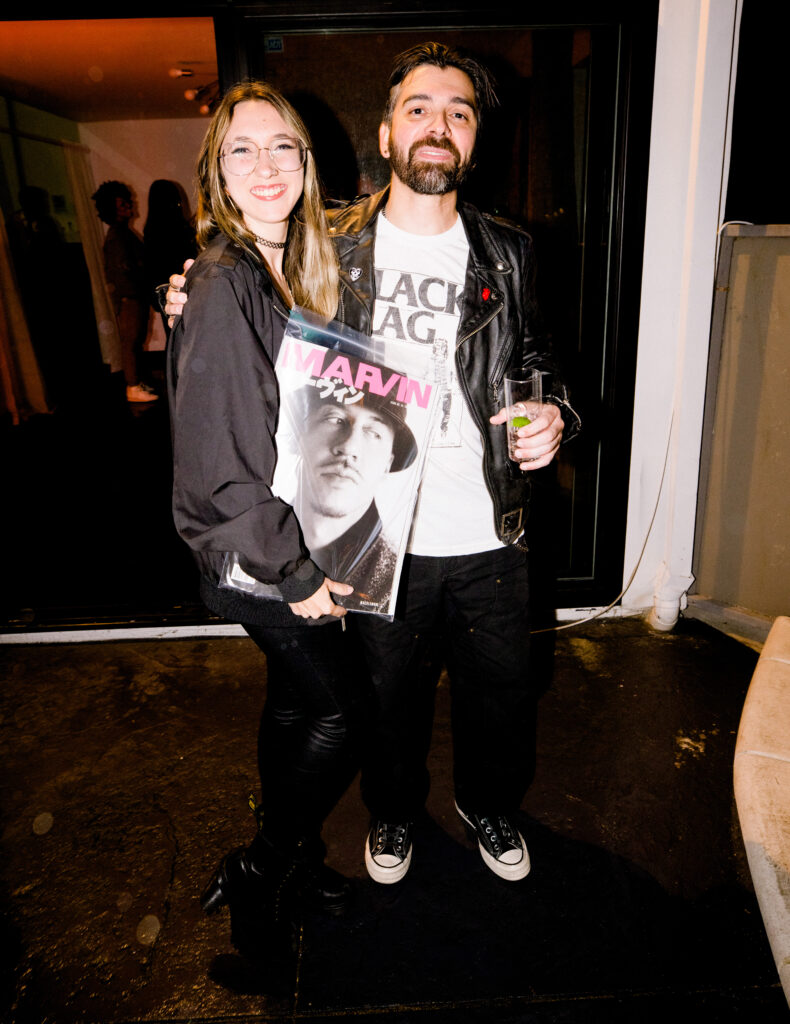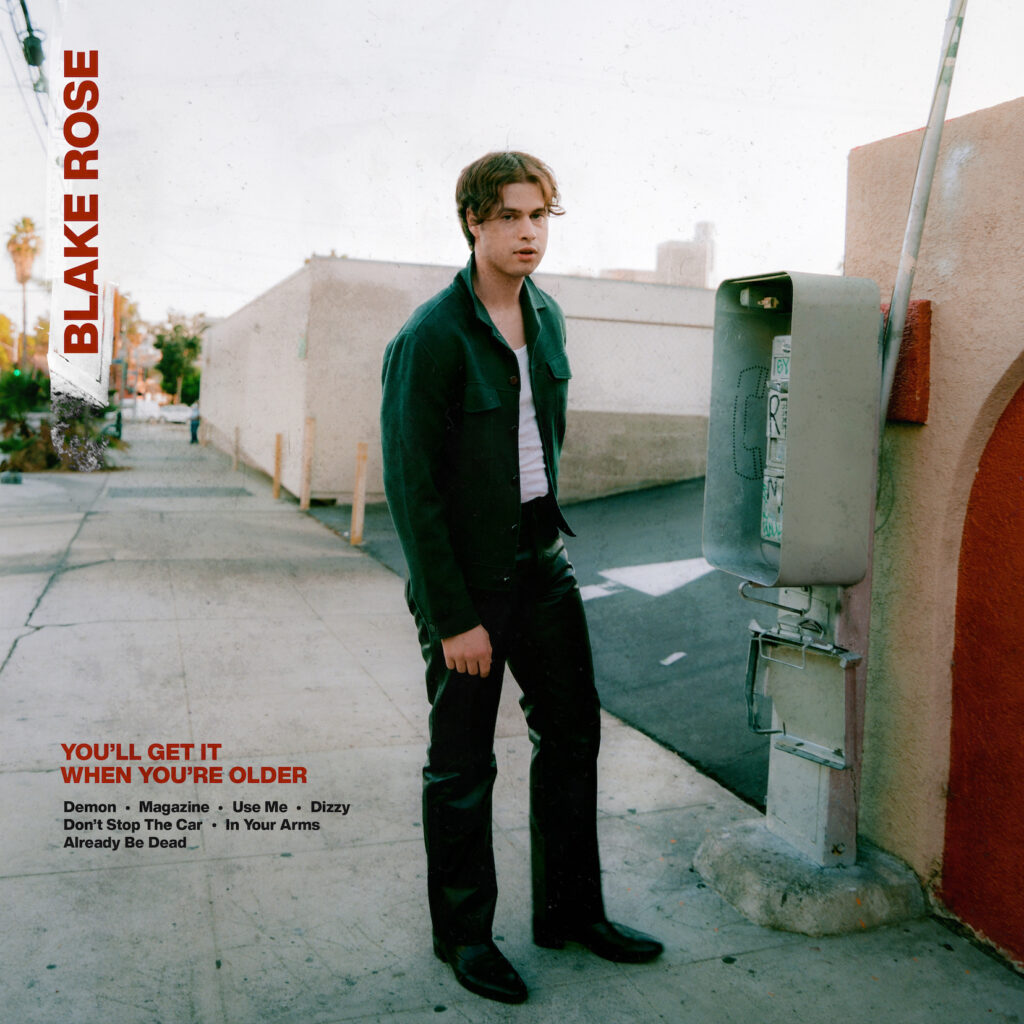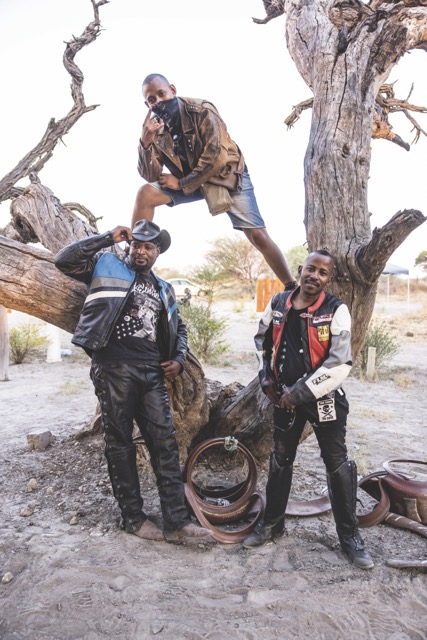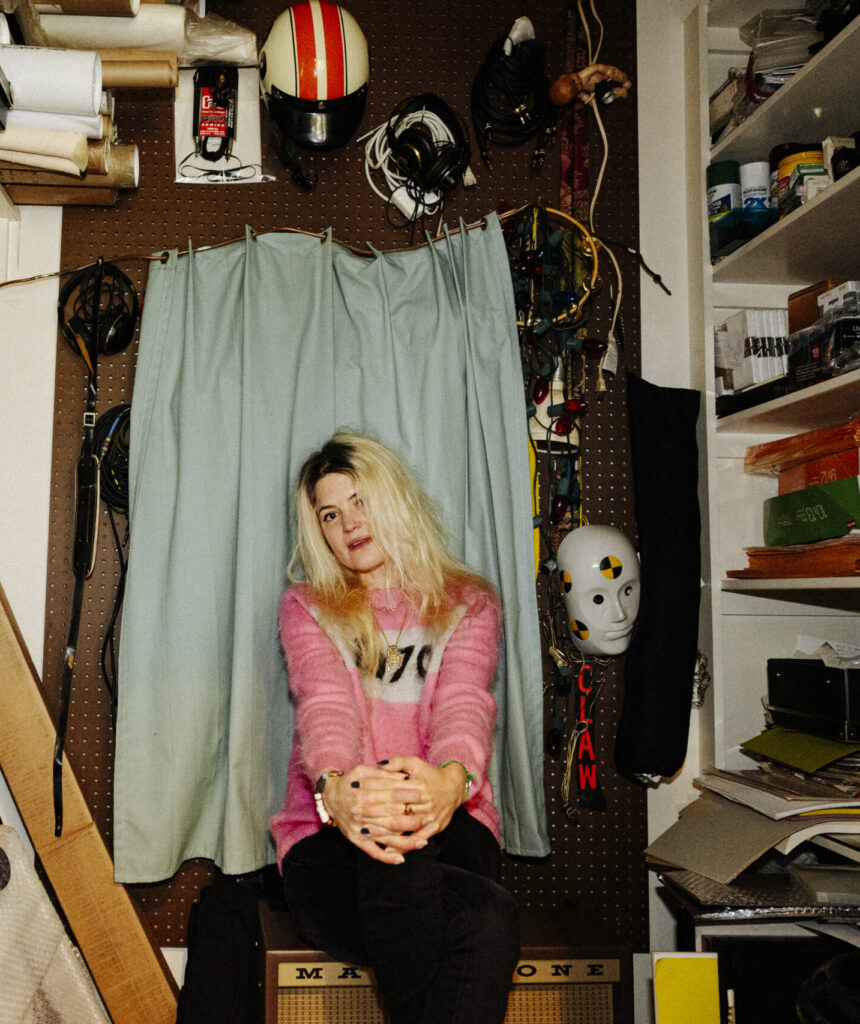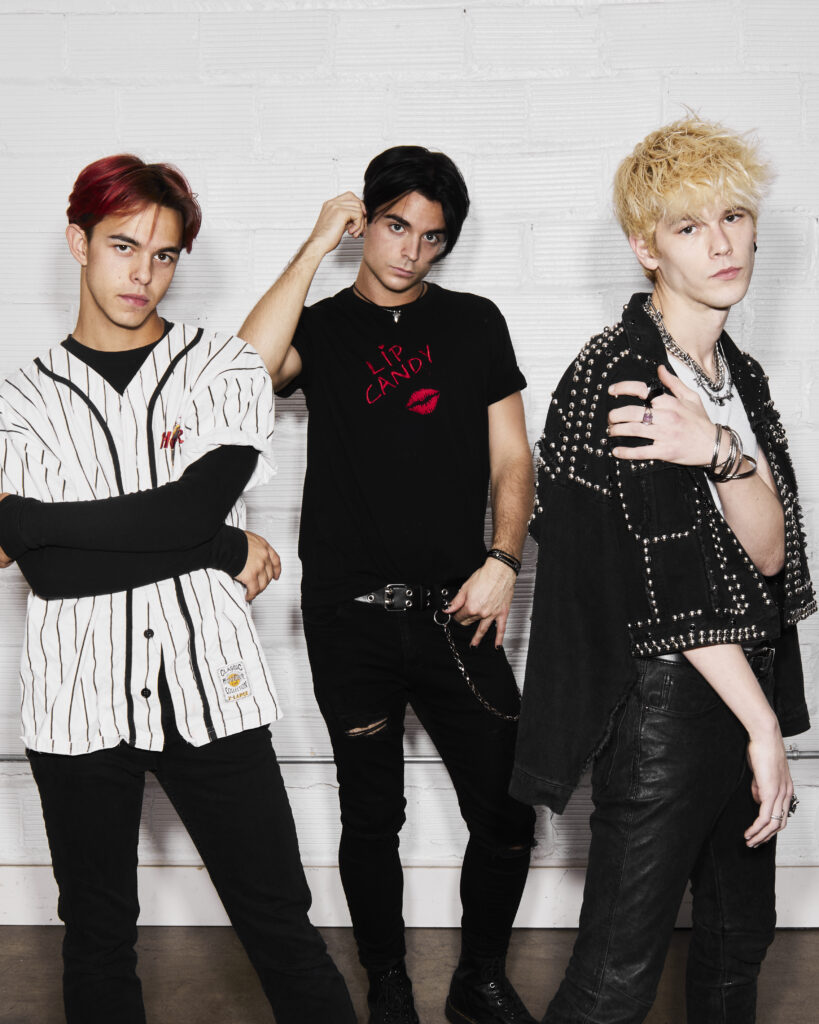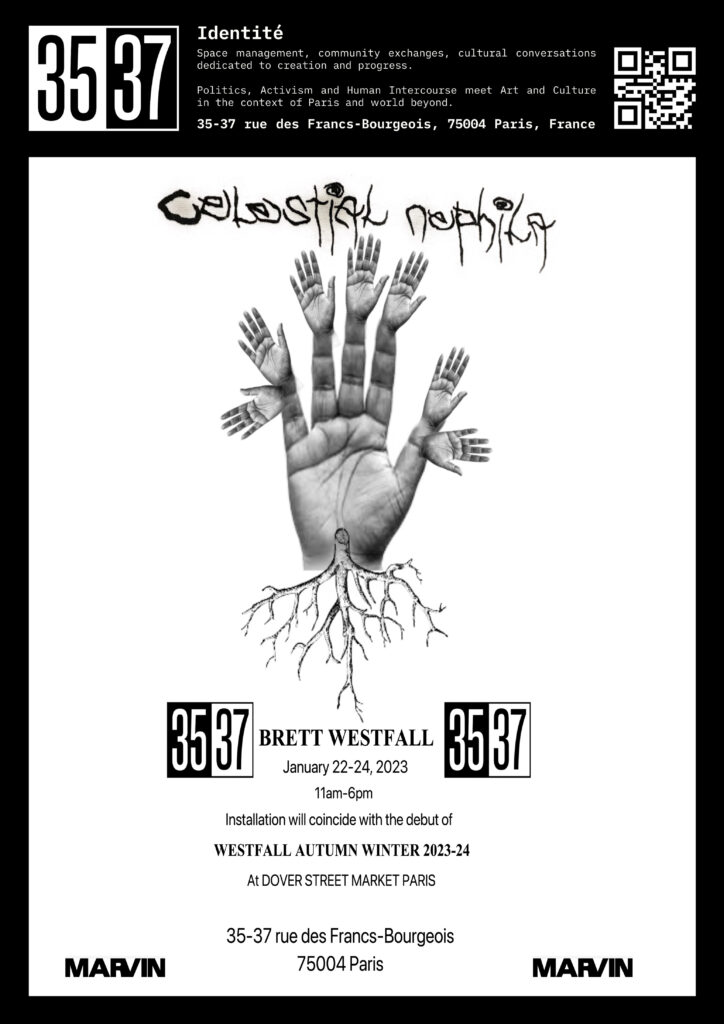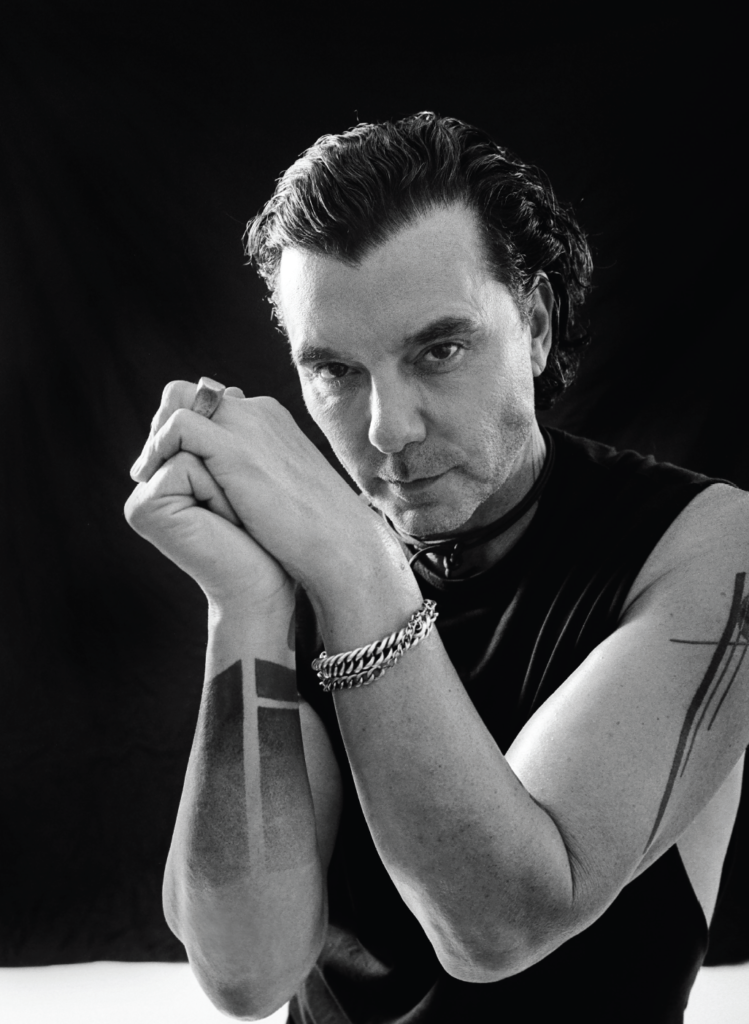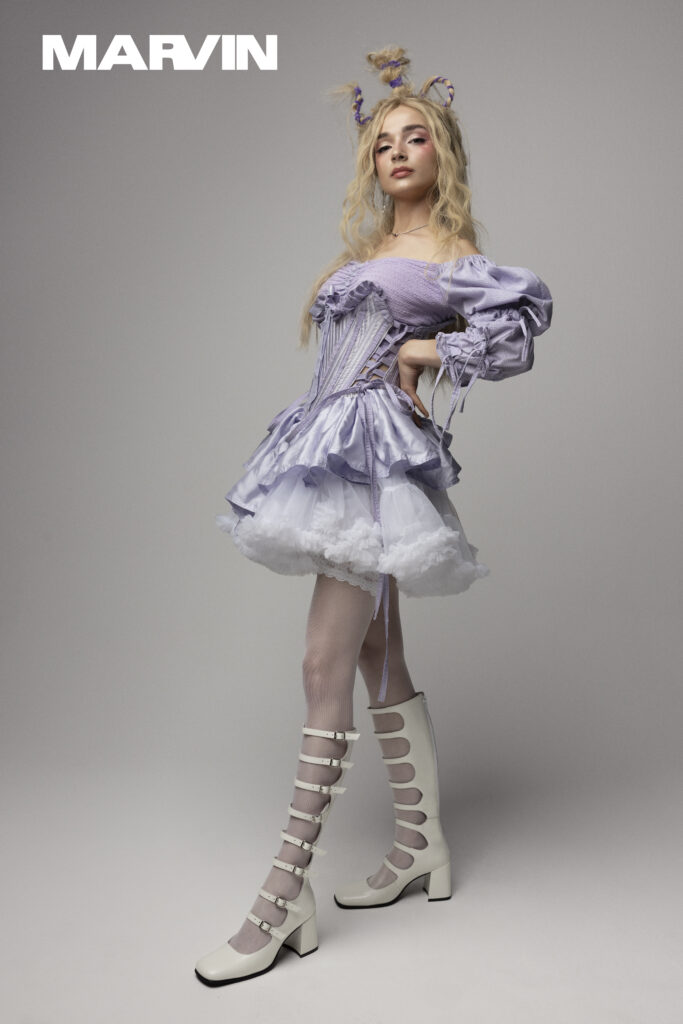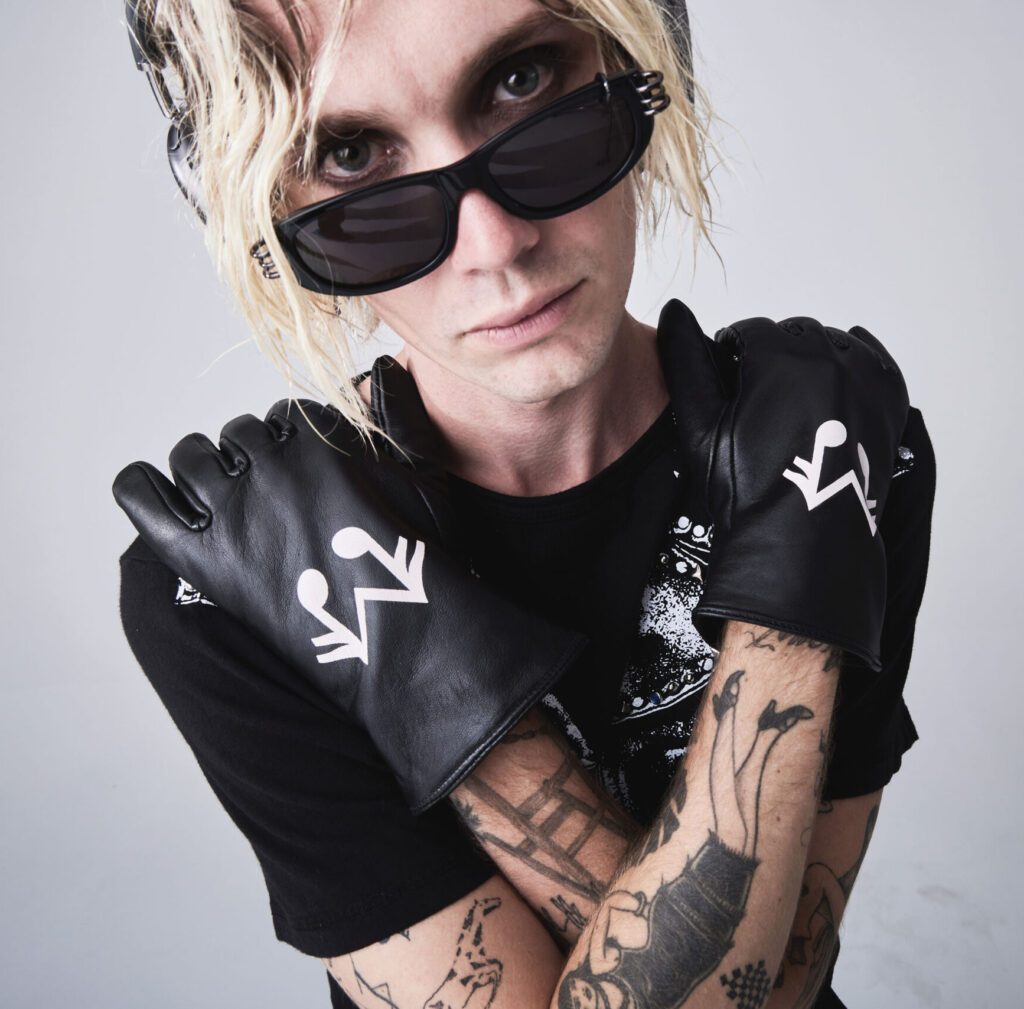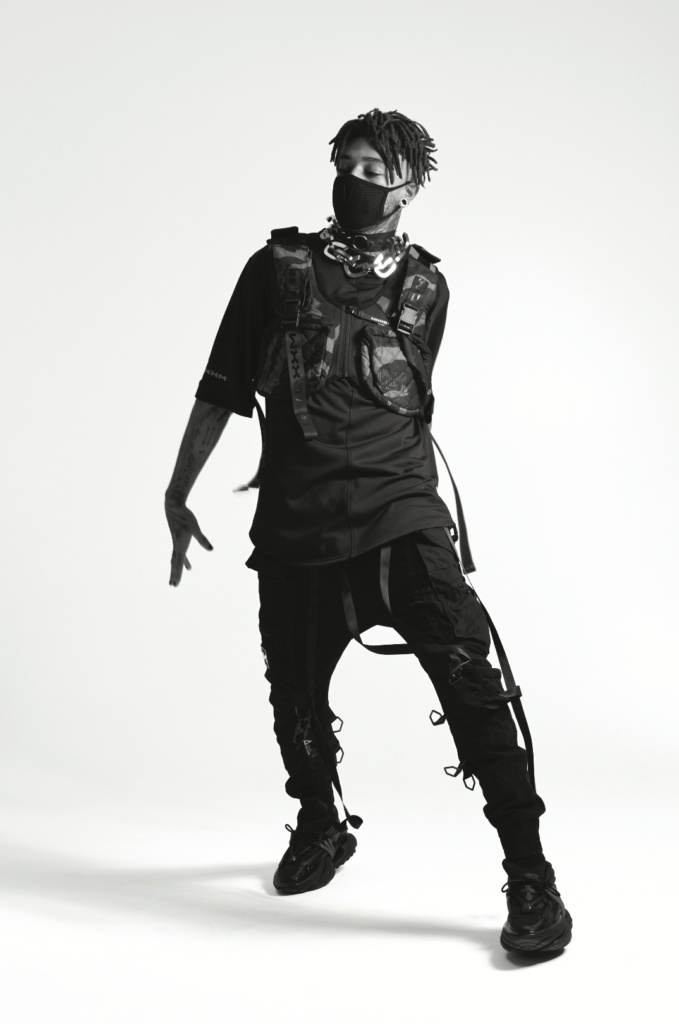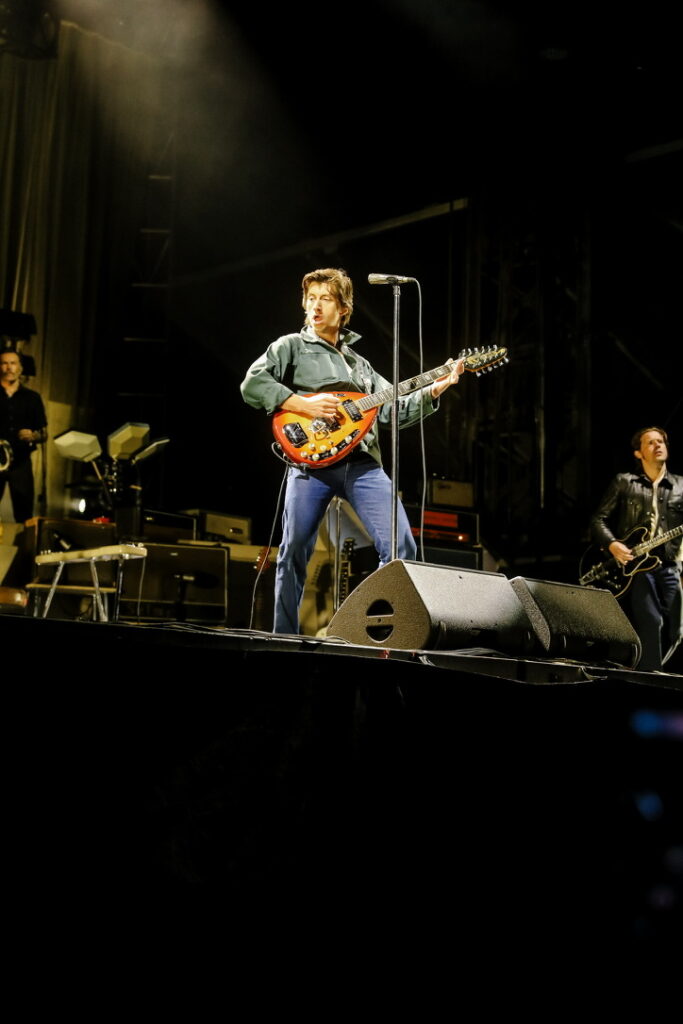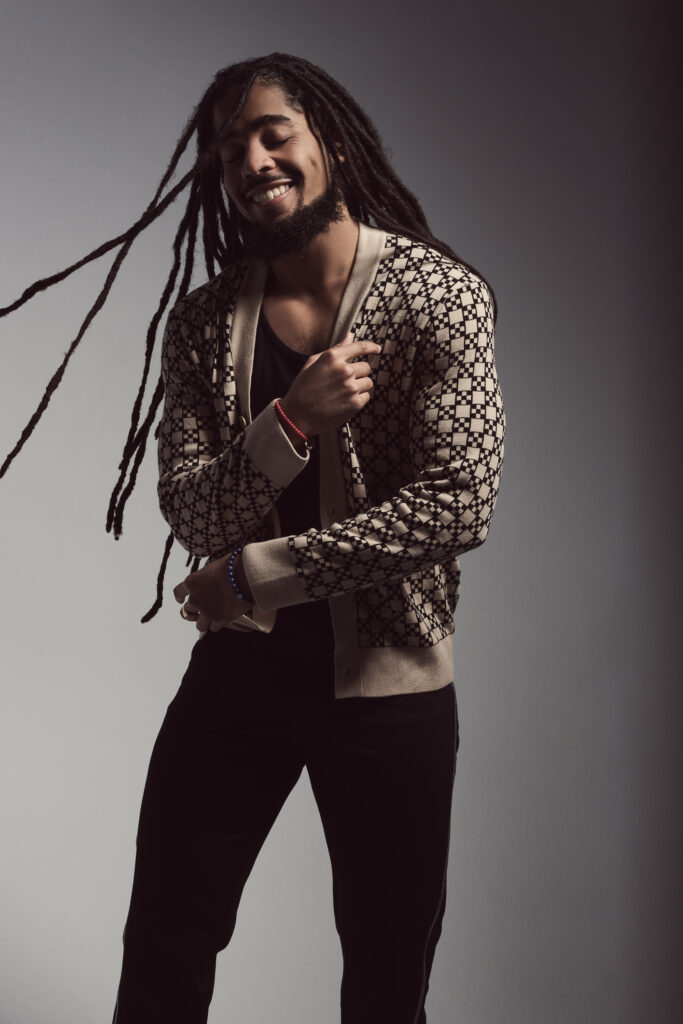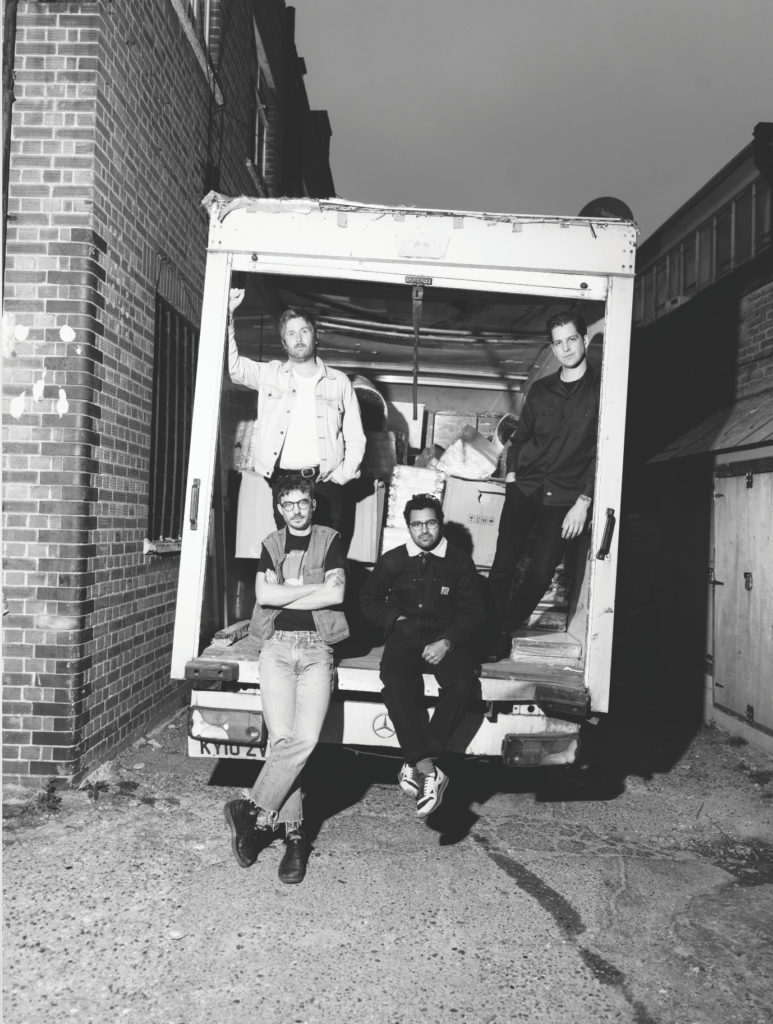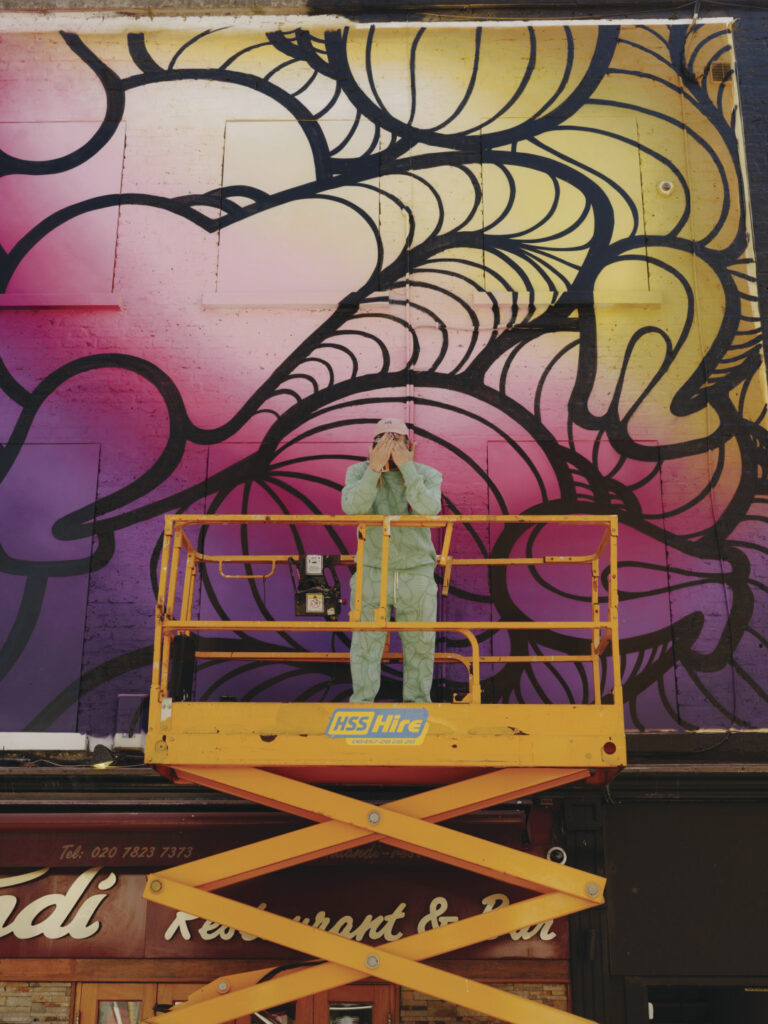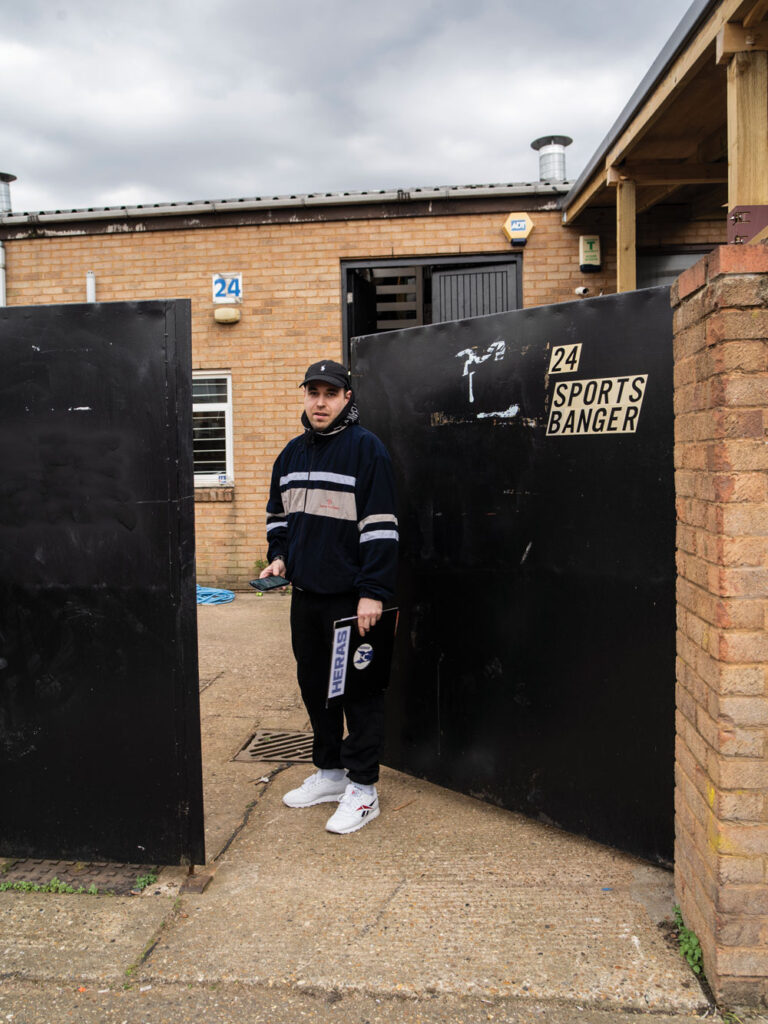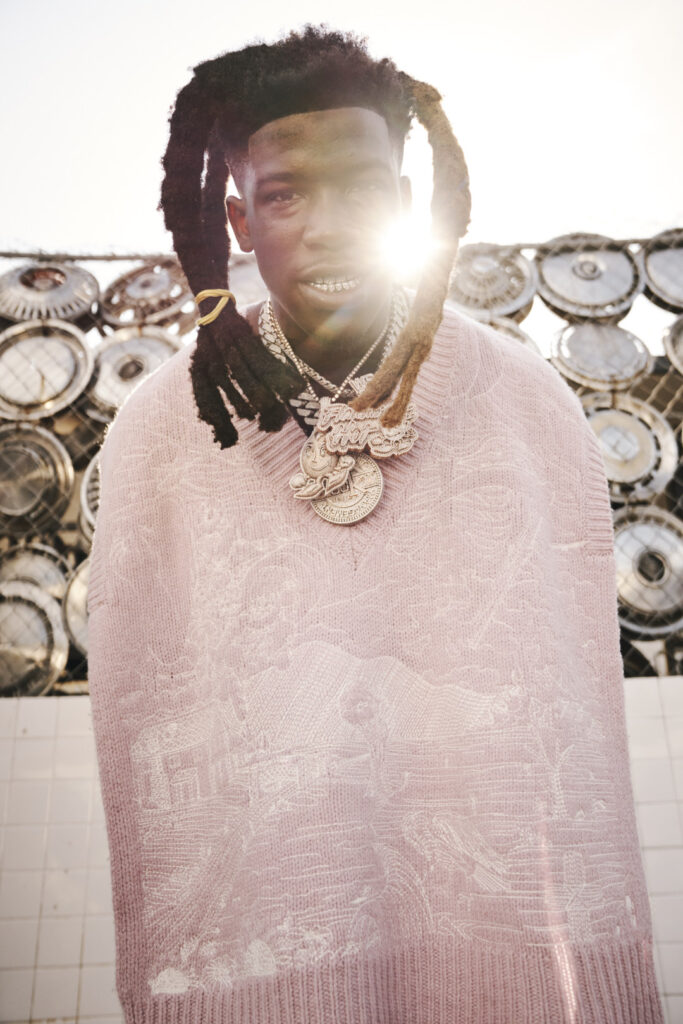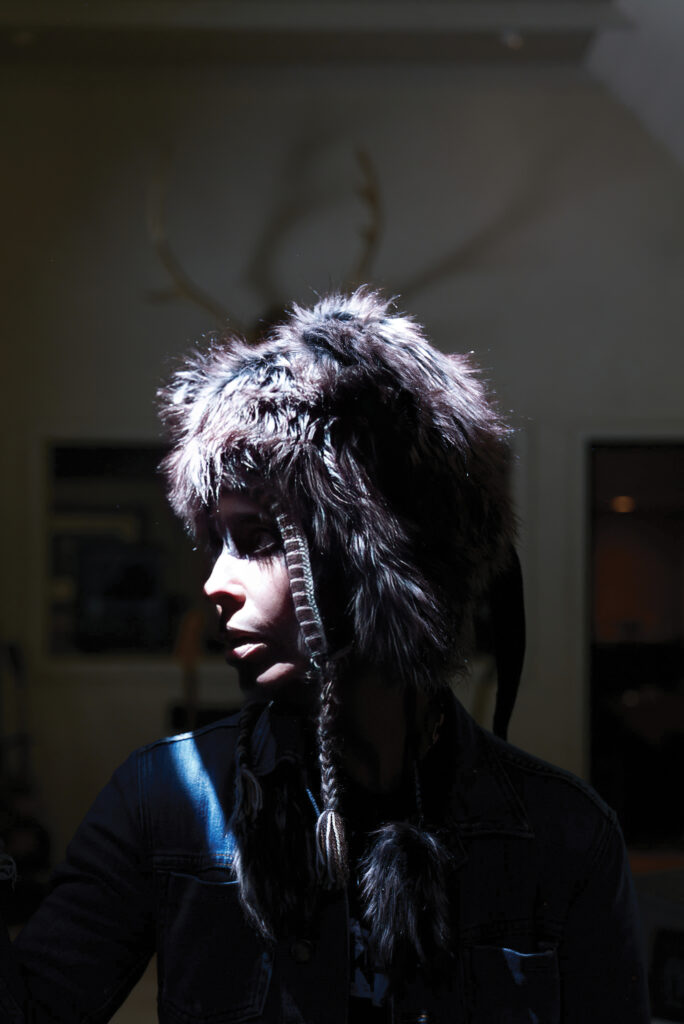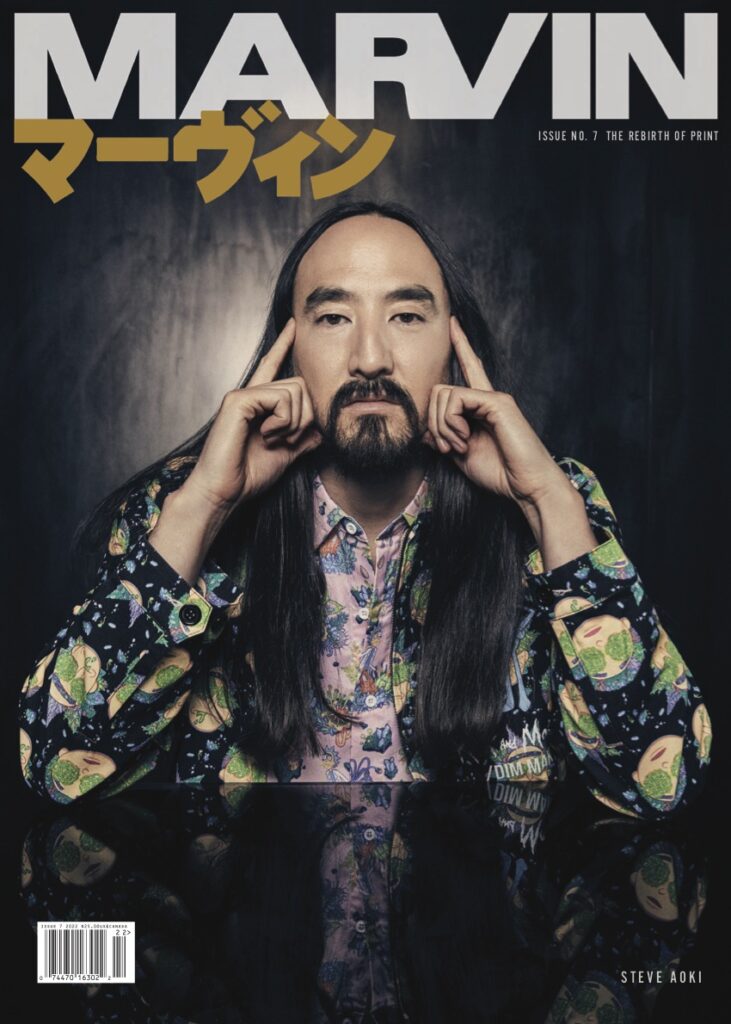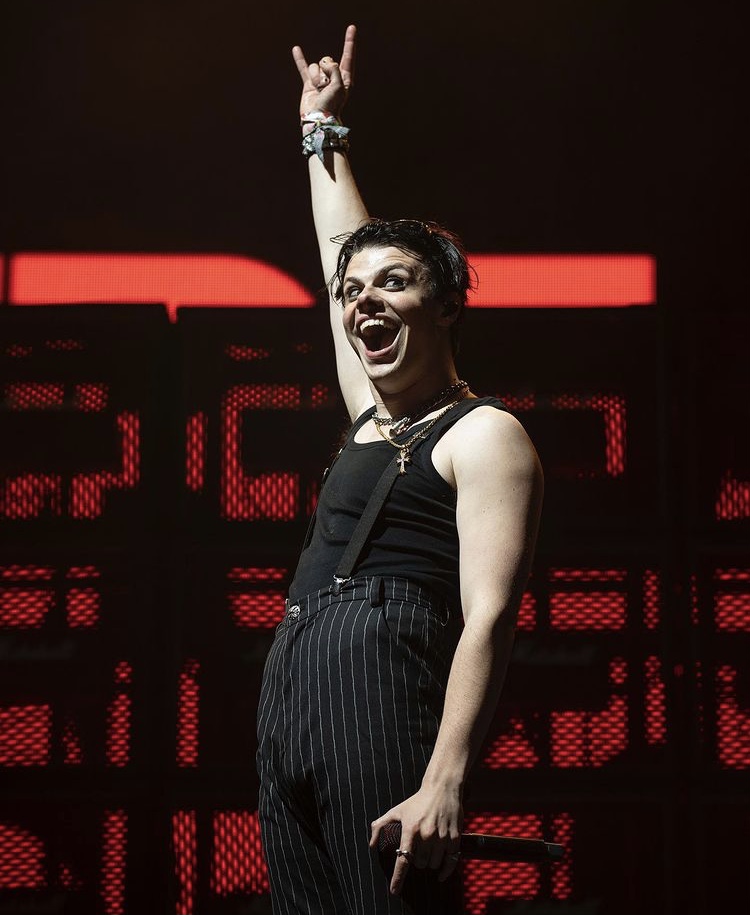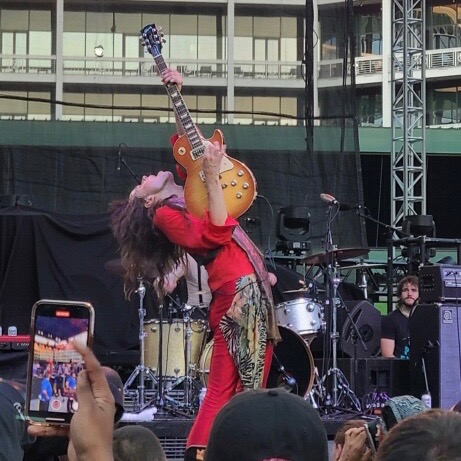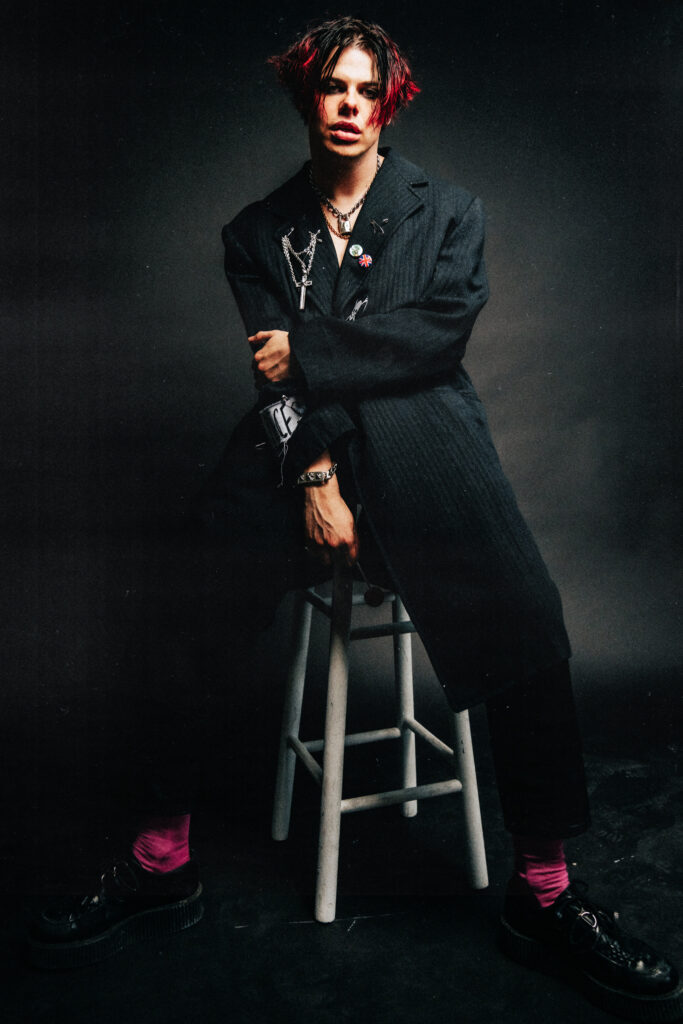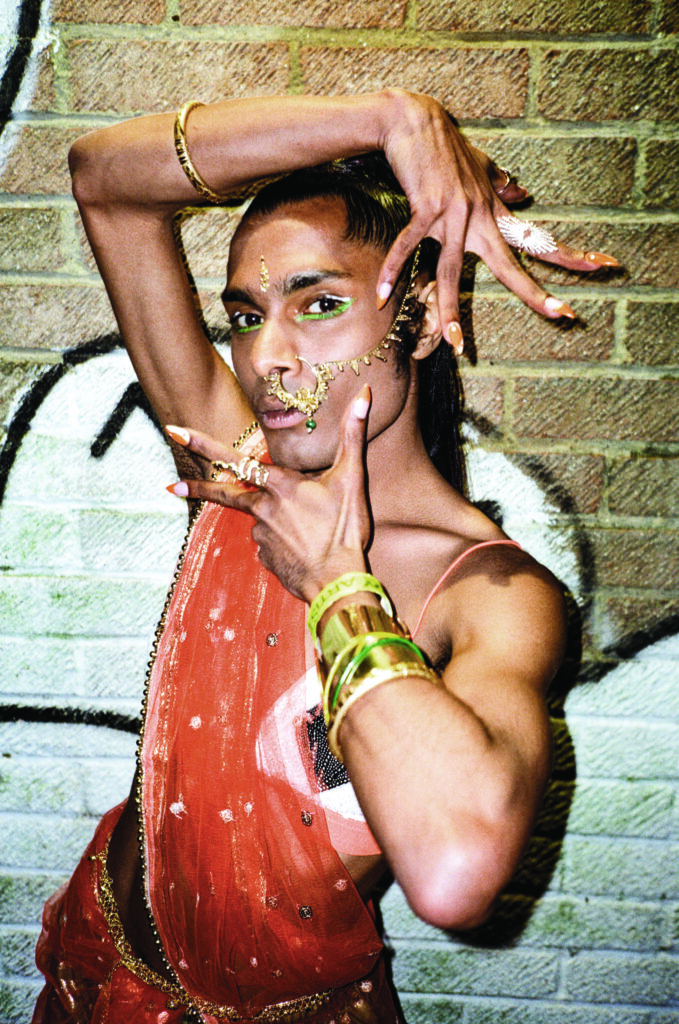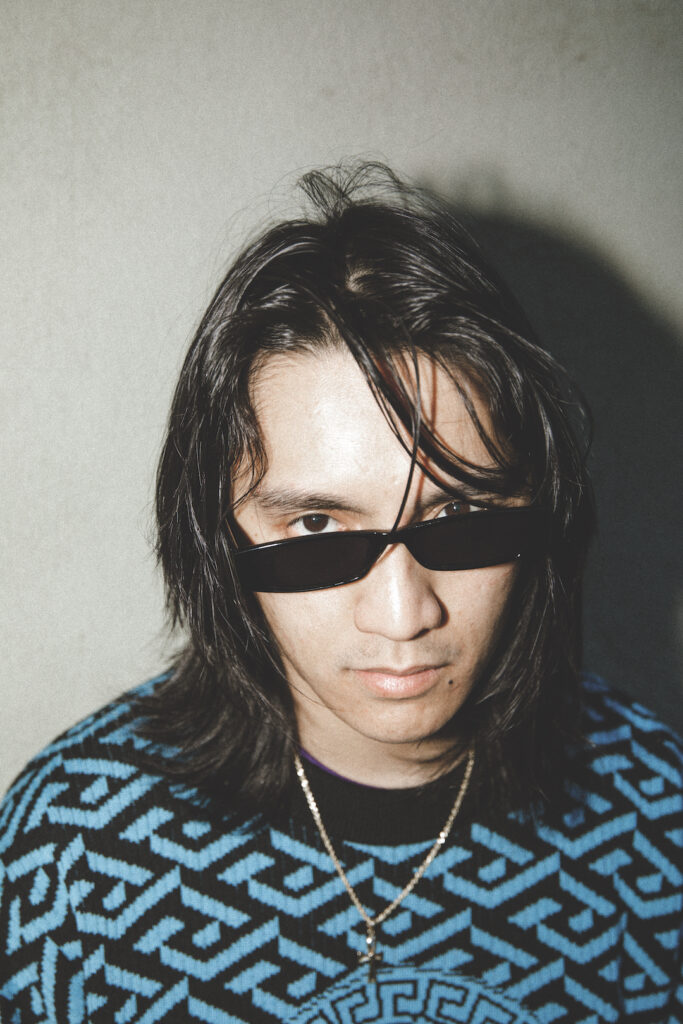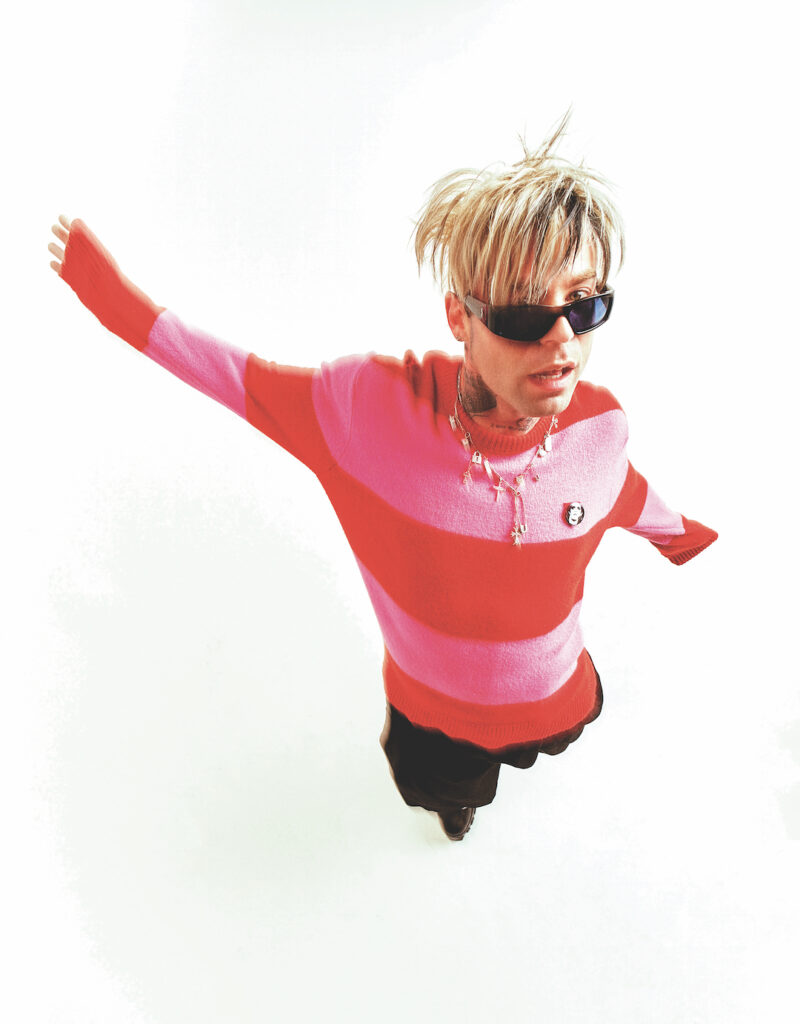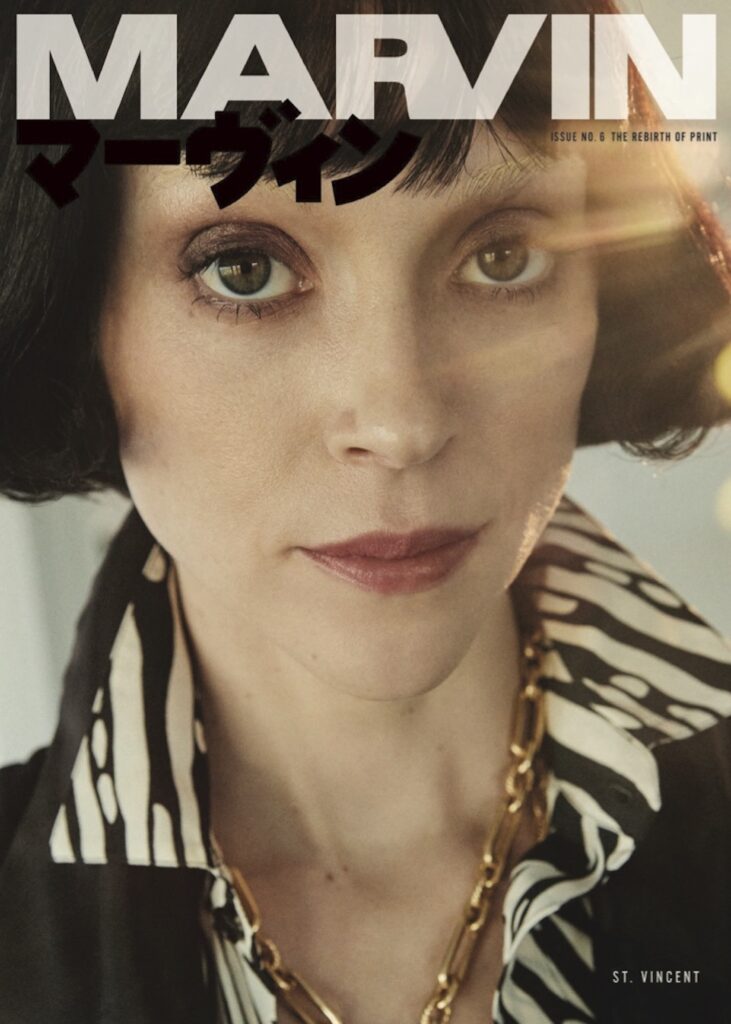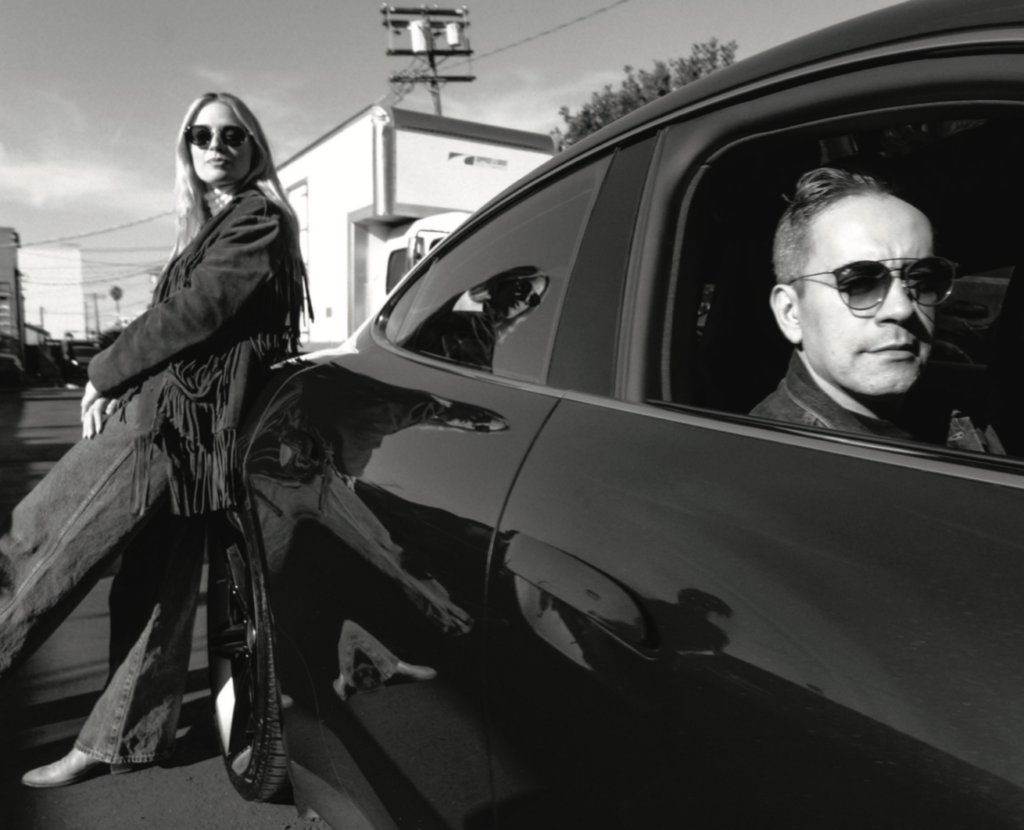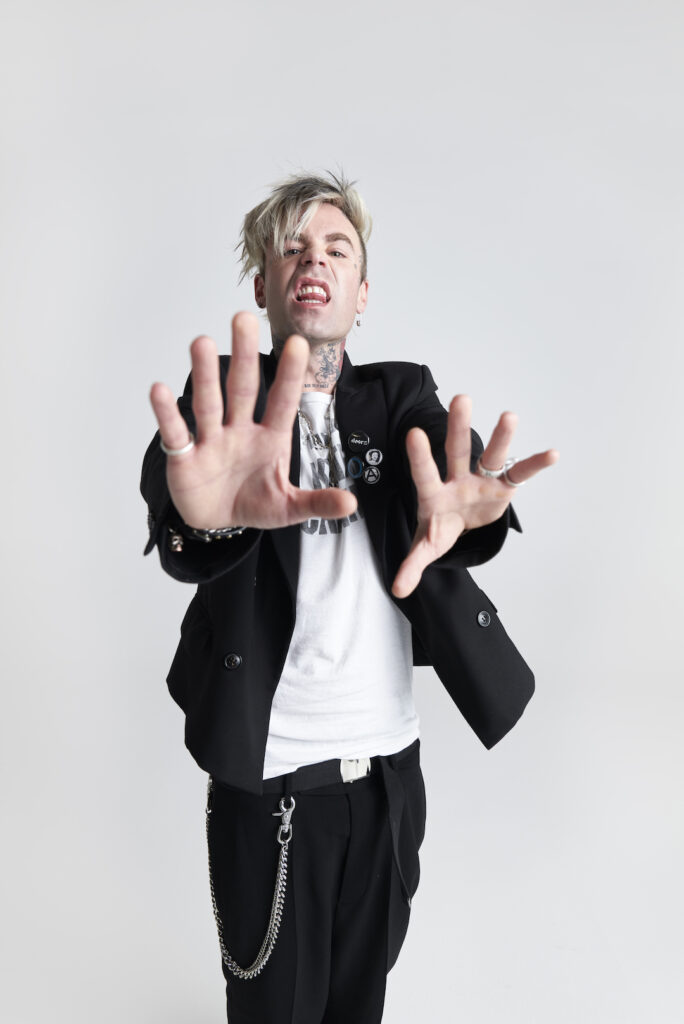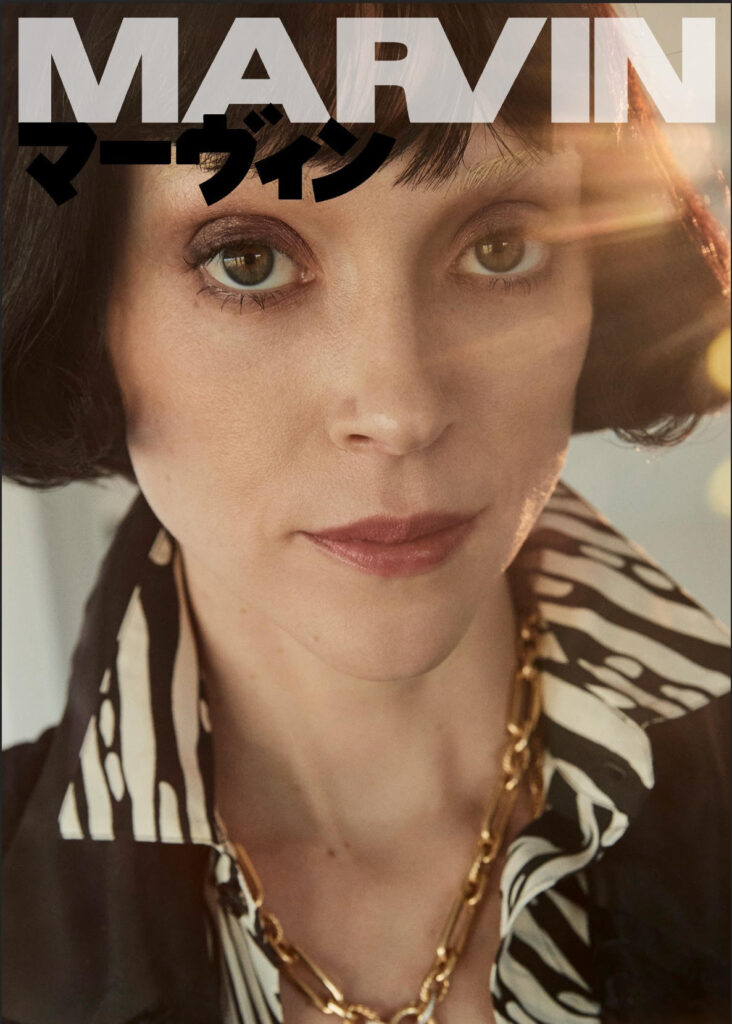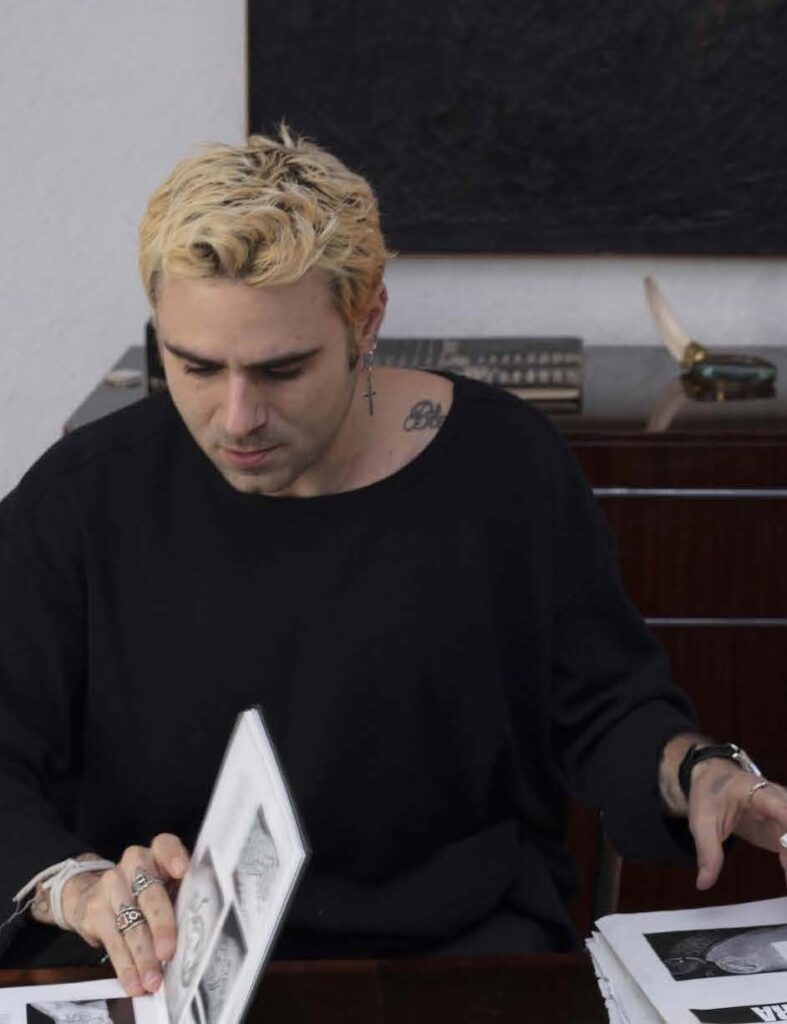Post-Punk Musical Duo Sleaford Mods Dive Into Group Dynamics, Touring and the Label of Punk
Words by Josh Jones
Photography by Dan Wilton
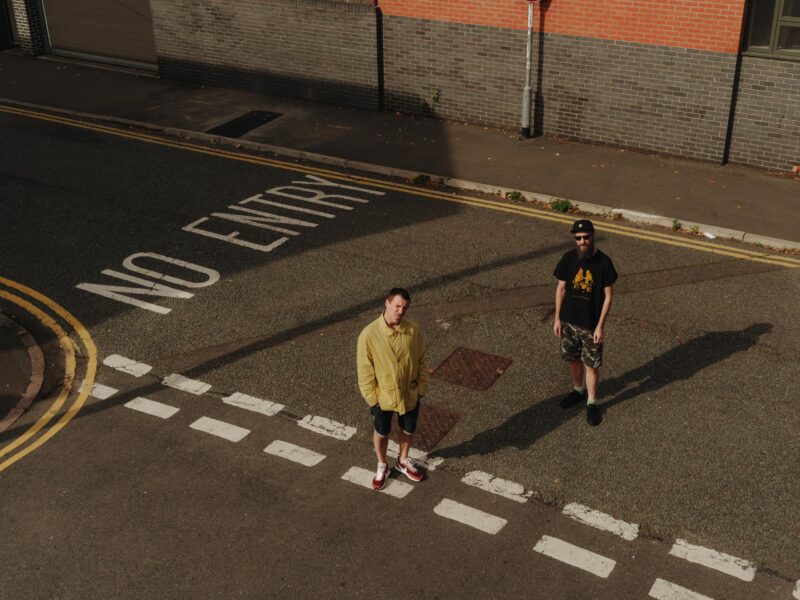
It’s a bright day in a moody industrial suburb in Nottingham, England. Sleaford Mods are posing by a lamppost for this magazine when a construction worker wanders over and asks for a selfie. He’s delighted when they pose and laugh at his cheeky attempt to wrangle free tickets to their local homecoming arena show later this year. Another guy wanders over but has never heard of Jason Williamson or Andrew Fearn, he just wants a light. “Why does no one smoke anymore?” he wails since none of us do. “Because we don’t want to die in agony,” Jason chuckles to himself.
The stripped down, bare bones, no bullshit, electro punk duo comprised of Sprechgesang vocalist Willamson, and beatmaker/producer Fearn have spent 15 years building a loyal fanbase with their unique sound, minimal live shows and no-frills attitude. Now they’re festival headliners.
Their fifth and latest record, Spare Ribs is arguably their best yet, and they’re itching to tour the new songs. Considered national treasures to some and thorns in the side for others, they’re gruff, friendly, weathered and don’t massively care what you think of them.
Jason, would you describe yourself as an MC?
Jason: NO! No way! I wouldn’t infringe on that, I wouldn’t dream of it. You can’t do that can you? Unless of course, you’ve solely done that kind of music. I’ve definitely been inspired by that hip-hop approach, a grime approach, street corner rapping and YouTube videos at bus stops sort of thing. It’s really, really, powerful that kind of performance.
Are you fans of grime and drill because you identify with the background that it comes from? With the minimal laptop and MC set up…
Andrew: I just accept it. I really like JPEGMAFIA, who’s definitely from that genre of music. It’s really minimal and it’s about poetry really. JPEG could have no music and just rap. It’s very poetically delivered and you get all this super minimal backing.
There’s no backing almost. I think that’s progressive in a way, instead of using these massive drum machines that are fully supported by companies like Roland. It’s a really good, progressive way of making music.
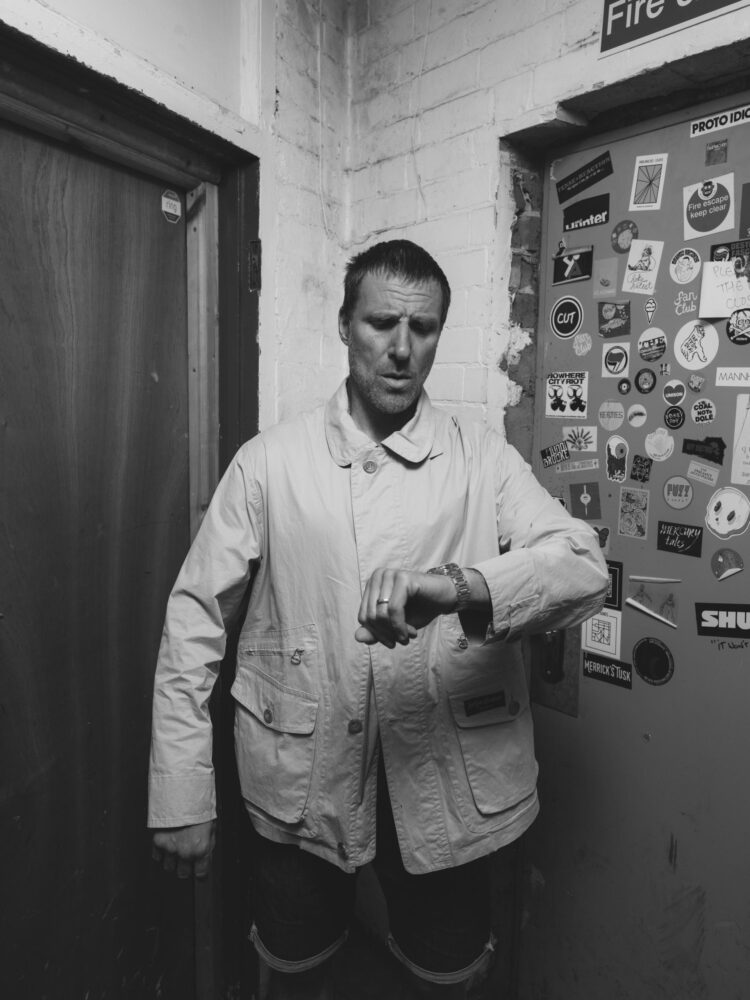
Jason: Would you call him trap? He’s drill trap isn’t he?
Andrew: It’s that rhythm isn’t it? It’s that progressive style. It’s about receiving it. It’s about being open to where things are going. I don’t want to know what it’s all about, I want to enjoy it. I want it to hit me in the face.
Jason: I’ve got a bit bored with it of late and I don’t know why. And you’ve got to watch yourself when you say stuff like that because it is a movement and it’s a lifestyle.
Andrew: Some of it is a bit more formulaic which is why I mentioned JPEG because I think he’s really progressive with it, a lot more experimental which is more the sort of thing that I’m into.
I guess that once something becomes successful then people see that and want to replicate it.
Jason: Yeah and I think because grime is on top now, it’s mainstream and it’s basically changed pop music and pop culture in the UK. Everybody has taken a bit of it on board so it’s not as effective as it was, like four years ago, I don’t think. I like it minimal and dirty. I perhaps like drill more but it’s a tough one. I haven’t listened to grime in a long time and to be honest, US hip-hop neither. I’ve not touched it really. That ROME STREETZ x DJ Muggs album [Death & The Magician]? That’s really good. But apart from that I’ve not touched it. I’ve been listening to 80s pop like A Flock of Seagulls! Or I’ve been getting into song-based stuff.
Why is that?
Jason: I don’t know. Because we’ve gone hard on beats and rants.
Andrew: I find it more about whatever I’ve still got on my Mac. Whenever I listen to music on my phone, it’s what- ever album Apple has let me have and not taken off my fucking phone.
Jason: This is what’s great about what you do Andrew, he’s like me. We’re not avid record buyers or listeners. We’ve already got this skill set that we can bring into a studio at any time. Influence isn’t really mapped out. We don’t sit there and really think about what we’re going to listen to. It is nice to do those hard-hitting tracks, that trademark sound that we’ve got. Whenever we do things, they always come about one way or another because we just enjoy doing them.
Do you feel any pressure that you have to do that though?
Jason: At this point no.
Andrew: I have in the past. I’ve always made sure there’s a banger on the record.
Jason: Yeah actually, I’m running away with myself there because you do take care of that I suppose, Andrew.
Andrew: There’s always a little part of my brain– that ever since we’ve been massively touring—where it’s quite hard not to think about the atmosphere at the gigs. So whether it’s a more chilled track or a funky track or a banger, it’s that audience that I’ve got in mind and can’t seem to get away from.
Jason: You’ve had that in your head about the gigs. They’ve gotta be lively, you’re right. So you’ve got to pro- duce lively shit. You couldn’t do like 12 songs of slowies.
It would just be boring.
Why Rough Trade as opposed to a major label?
Jason: I’ve heard some horror stories. People… “representatives” coming down to the studio halfway through an album and saying it all has to be changed.
Fuck that.
Andrew: There have been a few little things that have been suggested but I think since we’re not kids or peo- ple in their early twenties, it’s not as easy to manipulate us. It’s definitely something that from an early stage, [our music] was just something that got great feed- back. So many people said how great it looked, just us on a stage.
Jason: People couldn’t believe it could they?
Andrew: I think from 2013, people were already having their own parties with a laptop and just playing tunes. It was already like the new norm, so I think it was the right time for there to be kind of a “laptop band” if you know what I’m saying?
You’re set to play a massive homecoming show at Nottingham’s Motorpoint Arena in November. Are you going to keep things just as they are for that show?
Andrew: Yeah. We’ve got some new lights for the bigger shows that jazz things up apparently. We can’t see them from where we’re standing but it does look very good. I think for any band they have that “something” which is what they’re about and for us, that “something” is a lot about Jason’s performance and the music. That’s why it’s quite direct. Even a live band with a quirky guitar player with funny moves, that’s their thing. So once you’ve kind of made your thing, you can’t go changing anyway. I keep thinking about the guitarist Wilko Johnson and what he does on stage, it’s completely unique. He can’t stop doing that can he? ZZ Top can’t shave their beards off. You just can’t change it.
Jason: When you come to see us, you’ve got that setup of what we’ve created and the characteristics that go with it.
Andrew: When we were small in like 2013 and we were playing to 90 people and stuff, we were wedged between two noise bands on the art scene. We were like the relief from them. So it was kind of like performance art.
Jason: Those days. You kind of miss them sometimes but you can’t stay there.
Do you ever see your live show as an art installation?
Jason: Not now.
Andrew: We were though. One of the first dates we did was when we played Kraak Festival in Belgium. That’s famous for up and coming bands. [Evolutionary biologist] Richard Dawkins came with us in our car and it was all noise that year. There was this band called The Sons Of God [Guds Söner] who were really famous in Germany and were two old guys in suits who kind of did this dance performance thing where they couldn’t handle gravity while some other guy played noise behind them. They were massive. The audience was huge for them. They were complete performance art. We played before some kind of big artist who played some melodic stuff. We got everybody drunk and we kind of ruined it for him apparently.
Jason: That was the biggest audience we’d ever had up to that point: 300 people. Our old boss was telling us, “you can take this to the top, you can take this to the fucking top.” He kept going “best punk band in England” to anyone who walked past us. Fucking twat [laughs].
Do you think of yourselves as a punk band?
Jason: I reckon, if anything I’m a punk rocker. I see myself as one, I don’t know about Andrew. I’m just punk I suppose. Anybody going on about it these days, you’re just like: “it’s not punk, sorry mate you just sound like some cunt from 30 years ago.” I think if we’re near anything it would be punk.
Andrew: Punk’s a bit divided as well though isn’t it? Especially in Britain. You’ve got the punk events every year that just dwindle, more and more die every year. Then you’ve got the DIY attitude of punk which to me is what real punk is. There’s a real divide between Crass and Sex Pistols. In that old school way, they’re very different versions of punk.
You’re filmed under a reflective silver blanket in the music video for “Nudge It.” Is that a nod to Missy Elliot?
Both: Ohhhhhh!
Jason: I’d love to say yes, but no! It was the director’s idea. What was his name again?
Andrew: Eddie The Wheel. He’s done lots of big videos. I think he actually may even have mentioned a hip-hop artist, it might have been Eminem or something. But he definitely referenced that look as a classic hip-hop thing to do.
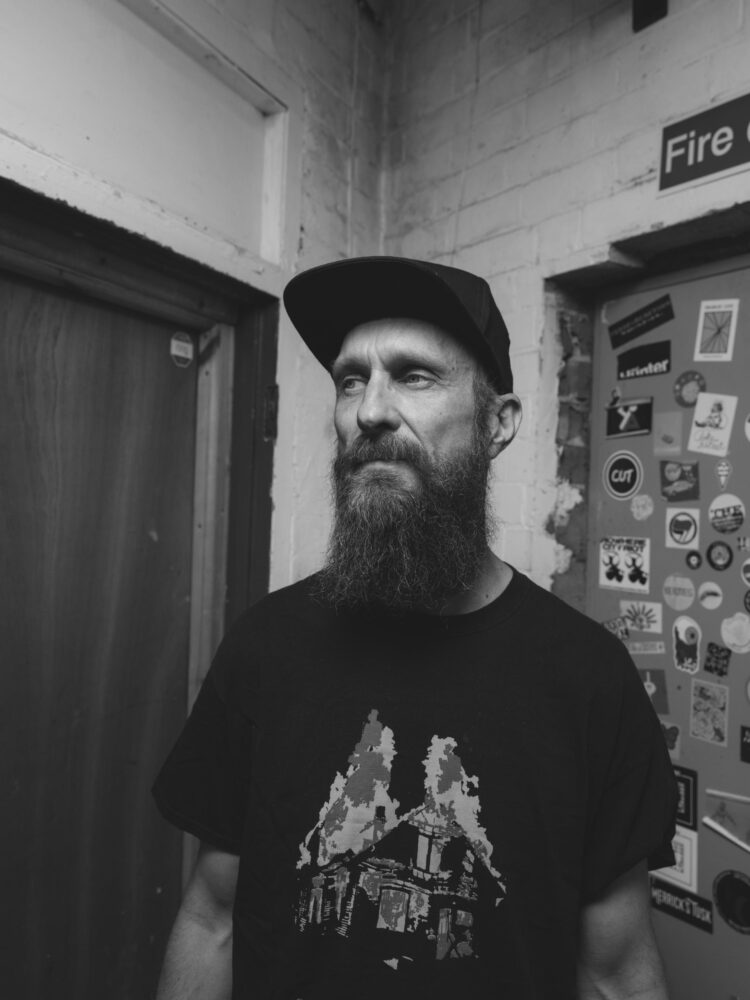
Jason: He wanted to do it in that whole fish-eye lens, 90s thing, which he did and it was brilliant. But no it wasn’t our idea. I think with artists like Missy Elliot, and black artists in general, people just don’t come round to what they’re doing till about 20 years later. It’s so far advanced and generally culture just takes off what black musicians are doing in many respects. It’s like constantly catching up.
Your newest album went amazingly.
Jason: Commercially, it’s the best one we’ve done. It really has built bridges in other places for us. Obviously in England it just feels like it’s got bigger, hasn’t it?
Andrew: Yeah it has. I guess I’m starting to appreciate what we have actually done. Making that transition is quite difficult. When we played [London’s] South Facing Festival in the summer, “Mork n Mindy” from the new album was the seventh track in or something and there was a massive cheer that went up when that started. That shows that promotion is working. When you are a bigger band, you do need promotion to get things out there, it’s not going to be word of mouth anymore. It was a shit load of gigging that got our audience for us and then when Jason started the fan page it exploded and was too much for him to deal with. We gave it to [the fans] to run and they wanted it anyway. That’s one of the great things about how genuine our experience has been.
Looks like you guys aren’t dicks to fans when they approach you. You were very welcoming to that guy when we were taking photos.
Jason: I don’t think I’ve ever been rude to a fan. We’re not like Harry Styles are we? We don’t get the feverish approach from fans, I guess. We don’t get people screaming or running after us.
Andrew: Sometimes at a gig we get what I call the “father/son combo.” We’re in this era where you’ve got a dad that likes the Stones and a kid who likes the Arctics and they both come and see us. One time I was walking back to the venue and this guy was like: “What are you doing? You’re just walking down the street?” He couldn’t believe I wasn’t in a limo or didn’t have a bodyguard with me.
How much do you see each other outside of Sleaford Mods?
Andrew: Not a huge amount really. We work really quickly and we have a good time when we’re together. We didn’t know each other before we started doing this so it’s a very different thing then when you were friends before and had that history together. I think that’s why a lot of bands split up actually.
Jason: Outside of “work” we don’t really see each other.
But we don’t have great friendship circles anyway. We’re not massively distracted by lots of other things. It’s kind of like a friendship outside of the band as well, but not.
Your spoken word is incredibly eloquent Jason. Where does your interest in language and words come from?
Jason: God knows. I’ll be honest I just started doing it and that was it. I started doing it in 2003 or 2004. I moved away from singing and started doing spoken word and felt “ahhh that’s better.” I was getting more out there and I always felt a bit constricted by verse, chorus, verse, chorus. I mean we have that with Sleaford Mods but it’s different — it’s more spoken word or “rappy” or whatever you want to call it. It’s broader, more space. I always had more to say and so when I started doing spoken word narrative on a song that kind of felt better.
How have you expanded your vocabulary?
Jason: I read every day. But only for about half an hour. I get bored.
Andrew: I think it’s got a lot to do with being outside of academia. There’s this thing about behavior, where we all know all these words but we just need to access them through nurturing, and if you can self-nurture then you’re going to develop into something more interesting than something learned from textbooks.
Jason: I think so. You do pick up new words but you generally use the same words in your vocabulary. There’s a lot of slang in there and in-jokes and that makes up for perhaps longer words. But would you really want to sound like an historian on a record? I do enjoy words and Andrew’s very good at suggesting them. We’ve got a very similar sense of humor. We’ll just vibe off one word all day and it’ll be so funny. Touring’s good for that– when you’re in each other’s pockets. Humor is very important. When I was writing lyrics before I met Andrew, it was very insular and woe-is-me bull- shit, you know, Richard-Ashcroft-The-Verve era lyrics or Noel Gallagher-whimsical-contemplation-bollocks. When I started writing stuff down in poetry or spoken word form, I found I could create lots more humor there. You’d find yourself laughing which was a new thing. It made it more real and more impactful.
Laughter’s good.
Jason: It is! Most of the time really, even if you might be miserable, you generally laugh don’t you? To a certain degree. Back when I was working, you were very con- fined with what you could do with your life.
Andrew: It’s an important part of working class entertainment to be able to laugh at yourself. That laugh or you’ll cry sort of thing. Bleak humor.
I saw Spiritualized play Hackney Empire some years ago and Jason Pierce stood sideways to the audience for the entire show, looking at the wings and not engaging at all with the crowd. Do you ever feel like doing that?
Jason: No I don’t necessarily block them out. I do kind of sing sideways a lot. Half-turned I guess because I like the way it looks and I also naturally do that. We’re not performing for the audience. We’re doing it for ourselves to a certain degree. You feel comfortable and it’s a look. I’ve never wanted to block the audience out but you do get nervous and you don’t look at people a lot of the time.
Andrew: I guess lyrically we have the odd song like “Tweet Tweet Tweet” that has a direct message. But a lot of it doesn’t have that thing like the Levellers of having to communicate a message. There is a lot of boozing with the audience though. We hold the record at The Hammersmith Apollo for the most alcohol sold at a show.
Jason: We beat Motörhead who’d held the record before us which I thought was fucking crazy, really.
Andrew: I think it’s because people are having a great time, really having it. It’s not like we’re a DJ act but the audience is really animated and drinking and dancing.
You’re one of the few bands where interviews usually open with questions about your political stances. Do you feel that people are just fishing for a sound bite?
Jason: Yeah. But it’s always been a bit like that. It used to happen a lot more than it does now. Now you get a lot of people who take the job seriously. They look into it and think about it more, which is refreshing.
Andrew: People wanting you to be a “voice for the work- ing class.” After the third album, all the interviews were like that and in the process of doing all those interviews, we really had to try and knock that on the head and change it.
Do you feel like you can still be narrators for unheard voices?
Jason: I think that now that we’ve got more money, we’re better off. I don’t know. I think there are a lot of things we talk about. We talk about it a lot on Spare Ribs so I suppose so.
How long does it take you to come down from a tour? It’s a very intense performance.
Jason: It takes me about two weeks. You find yourself in a zone and then you just crash. I’m going through the crash now from the headline performance at [Wiltshire’s] End of the Road Festival. I’m a bit pissed off. Definitely a bit blue.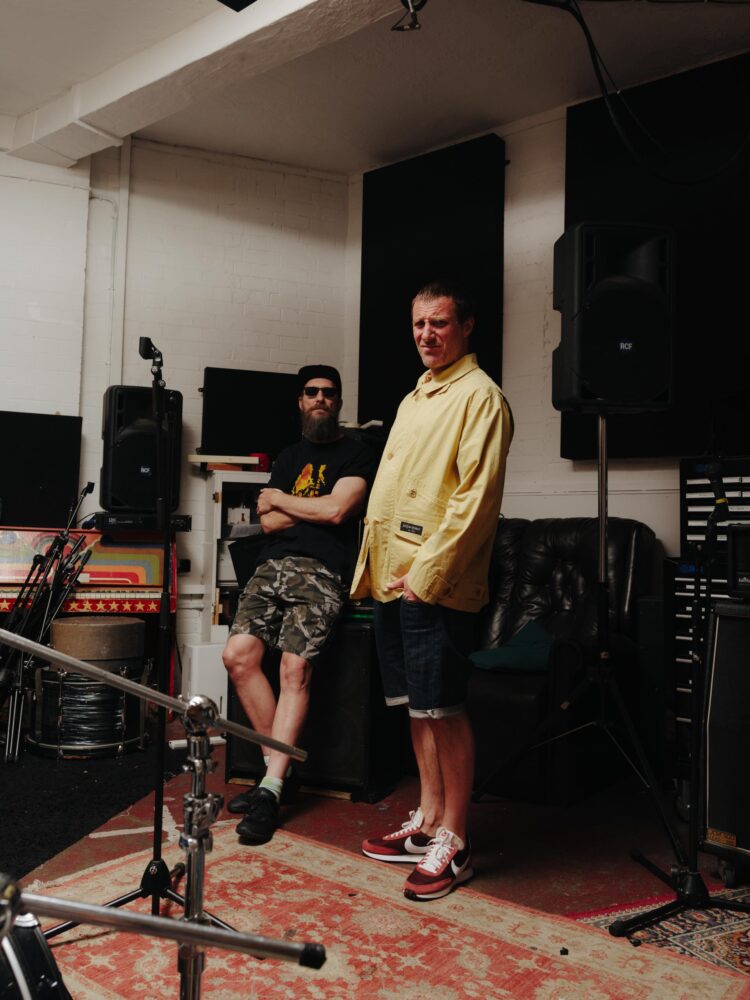
Andrew: Staying on tour would be easier than coming off tour.
It’s an aggressive show.
Jason: You work yourself up and start slowly. You get faster and then it plateaus. Then, goes up a bit more. We exercise every day now.
Andrew: I think it’s the same for any band. The more the minutes tick closer to getting on stage, the more the adrenaline kicks in more and more.
In Issue 2 of MARVIN, Mike Kerr from Royal Blood says now that he’s sober, he boxes after a show to wind down. What do you do?
Jason: After? That’s weird that. Fuck that.
Andrew: For both of us, in a way, it’s after the gig that’s the nicest bit. Even though the adrenaline is going, it’s the time when you can relax a bit. You’ve done it.
Jason: There’s no better feeling than getting up the next morning all ache-y and stiff.
Andrew: The rest of it is proper rock star stuff, like hotels and sunglasses and limos, just waiting for the show.
Jason: We make sure there’s a gym at every hotel we stay at.
Andrew: I’ve only just started doing that. I’ve stopped drinking now but I used to just get pissed on stage and then smoke weed all day. But I’ve quit both of those now so it’s going to be very different for me in the future. It’ll be a lot easier.
Jason: It is a lot easier actually. I don’t know if I’ve noticed a change in energy since you stopped drinking and smoking but you seem more free, more expressive perhaps. I love exercise, all our crew– apart from Ray our sound guy– are mad for it. Ray just wants a fry up. He’s like a bin, tipping it in.
Do you guys feel like rock stars?
Jason: I reckon both of us have gone a bit rock star-y since Spare Ribs but in a good way. We’re a bit more at ease with it, a bit more settled into it and enjoying the hard work. We’re aware of it all a bit more.
Andrew: We’re not ordering square watermelons or anything like that. We’ve always had a very minimal rider of a few nuts and things. We’ve never asked for much. A lot of people have commented about how we don’t have a lot of stuff and it’s like, “why would we?” A tour arranger we had used to tell us about bands order- ing a jar of mayonnaise and use it once and leave the lid off and go. That’s just a waste of food in our eyes. We’re quite conscious people when it comes to waste and stuff like that.
Do you feel like national treasures? You’ve been described as that.
Andrew: Maybe a little bit, yeah. When I go online people seem to be really nice and kind. I get messages from people every day saying they can’t wait to come see us play and stuff. We get a lot of online support. I bet Jason gets tons.
Jason: Yeah but they’re directed at me and you. I dunno, probably we are [national treasures] I guess. I like to think we’re definitely up there with some of the classic English bands I reckon and we’ll get remembered for that.
Would you take an MBE [Member of the Order of the British Empire]?
Jason: No. Fucking no chance. Absolutely not.
Kind of knew the answer to that one…
Andrew: The guys that own [London’s] 100 Club really love us and they put us on the wall with all those other bands that have played there. And that’s surreal enough.
It’s a great place but it’s got a massive fucking pillar in front of the stage.
Jason: That’s a real pain in the arse that pillar.
Andrew: And having to walk through the crowd to get to the stage from the dressing room. It makes it more real and stops dickhead bands wanting to play there as well.
Jason: Dickheads and cheesy bastards are the real problems in this industry. There’s tons of them as well. More cheesy bastards than dickheads. Dickheads can be secret and undercover though and then they’ll suddenly switch and you’re like, “fuck me, you’ve been a cunt all this time! I should have known!” [laughing]. Also creating what we have, the ricochet of that. You know the saying “imitation is the best form of flattery”? It’s not really.
You’re a hard man to mimic because you’re so unique.
Jason: There is that I guess. It’s just little offshoots of your characteristics that other people have taken. That belongs to us. You can’t have that. You need to create your own thing.
Andrew: I’ve seen a handful of people do a two-person thing but they’re not copying us. They’re still doing their thing. The first few times we played in Switzerland, there was this guy called Bit-Tuner who’s an electronica artist. He did a project with Göldin who’d smoke cigarettes on stage and slag the Swiss government off while Bit-Tuner would play his music. So it’s totally different but with elements of what we do. They were just doing that at the same time. In Germany and Europe it’s common to get a vocalist and someone making music but I don’t think it’s been as successful [as Sleaford Mods]. In Germany they embrace everything. We really need to take a leaf out of their book. When we were smaller, playing smaller venues in the UK, it was awful.
Jason: The UK is just so slow to the mark.
Andrew: Everyone here thinks everyone’s a wanker and you don’t get that in Germany. That’s why smaller bands go there.
Jason: The combination of Andrew’s bass and beats and my punky singing really caught people’s imagination there. We just fucking went. The UK was like “ohhh.” Then you’ve got the UK press which in some respects is still catching up. There are people that won’t let go of the eras that they were considered good writers in. You get a lot of this with some reviewers, I’ve noticed. [Writers] who were big in the 90s or whatever and are still carrying that [sighs]. Whatever mate, stop being sarcastic, I’m just gonna knock your teeth down your throat if I see you, cunt.
Jason & Andrew: *Laugh*
@sleaford_mods
